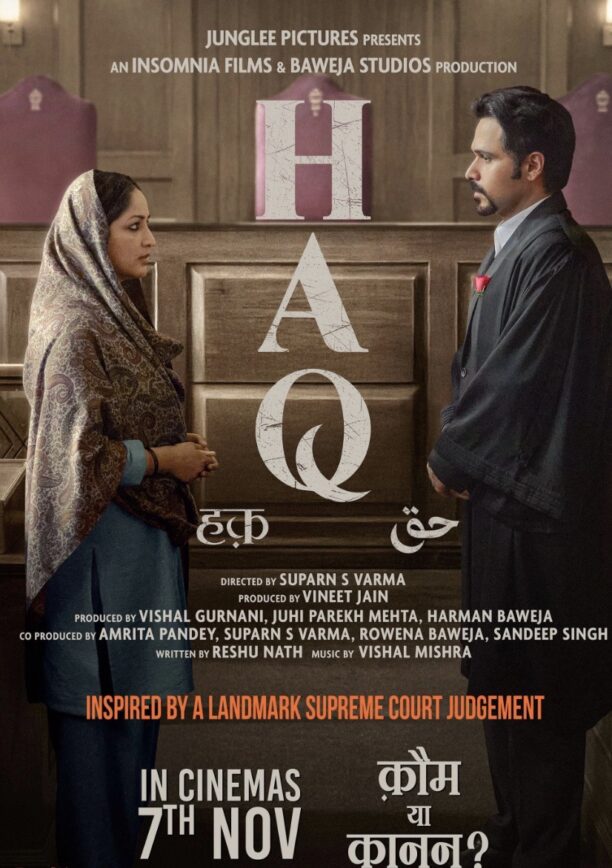 It is a gripping gritty story of one woman’s fight to protect her children’s rights. And yes, it may offend some out there who are ceaselessly smarting for fights with those who try to bring a change into our society.
It is a gripping gritty story of one woman’s fight to protect her children’s rights. And yes, it may offend some out there who are ceaselessly smarting for fights with those who try to bring a change into our society.
But Suparn Varma’s Haq doesn’t give a flying duck. It is film that knows its mind. Unlike other truth-based films in recent times, it doesn’t commit the cardinal sin of over-loading the plot with its truth. Sure, the pitch is direct and forthright. But above all, Haq tells a riveting story filled with sound and fury signifying something that we all need to know.
Director Suparn Verma (where did this come from?) is fully invested into telling a story that needed to be told. The historic Supreme Court judgement on the Shah Bano case in 1985 had far-reaching ramifications in the way religious arguments are engaged in the courtroom to subvert laws and use them to deprive marginalized sections, in this case Muslim women, of their rights.
The storytelling is sharp and not afraid to call out the sacred cows and holy ghosts , even if it entails stepping on some toes. What stands out above everything else is the argument that the law cannot be different for a section of Indians.
The pungent writing(standing ovation for Reshu Nath) doesn’t take sides. Our empathy for , ahem, Shazia Bano, emerges organically from the storytelling. There is no deep punctuation in Sandeep Chowta’s background score. He knows when to stay mum.
The characters never speak out of turn, although I did find some of the drama being overstated. For example, Shazia’s father (the exceptional Danish Aslam) and his social ostracization needn’t have been so in-your-face. Shazia’s nasty neighbour is too illustrative. Or the judges in the courtroom: they could have been better played. One of them looked absolutely bored.
But I am quibbling. Haq doesn’t deserve to be pulled up for its small foibles. It is a treatise on societal prejudices , so free of prejudice that you wonder how such a simmering synthesis of social statement and cinematic ingredients was possible.
I especially like Suparn Varma’s economy of expression in the key sequences, like Shazia Bano’s climactic courtroom soliloquy which risks being bombastic but pulls back well in time.This is as opportune a moment as any to applaud Yami Gautam for her resounding performance. Her Shazia is humane and passionate, obstinate and vulnerable, all there and yet mysterious in her unpredictability. Thirty years ago, Shabana Azmi would have been the undisputed choice for Shazia Bano. Yami does everything to the character that Shabana would have done.Yami’s is the performance that deserves every award this year.
Emraan Hashmi brings gravitas to his thankless bigoted husband’s part. His Abbas Khan is an irate lawyer , a failed husband and conflicted Muslim. Some of the supporting roles needed better contouring. But Sheeba Chaddha and Aseem Hattangadi as Shazia’s lawyers are exemplary in their pitch.
Haq has its flaws, Abbas’ second wife could have been played by a stronger actress. But it is a film that cannot be taken lightly. It must not divide the audience into ‘them’ and ‘us’. This is not about segregation but an affirmation of cinema as a tool of reform.








